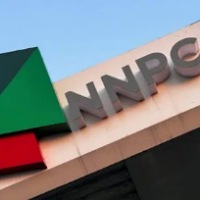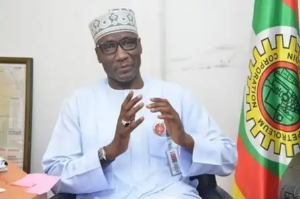Gas
Natural gas demand set to soar

DUBAI – Natural gas is likely to grow in importance over the next few years, with the Middle East, China, Africa and India in particular set to record significant increases in demand.
Demand for natural gas is expected to increase steadily as a percentage of the global fuel mix over the next two decades, and is estimated to account for almost a quarter of the world’s energy demand by 2035, According to EY’s recently released Business Pulse Oil and Gas report.
 Commenting on the findings, Dr Thorsten Ploss, EY’s Middle East and North Africa Oil & Gas leader, said: “Natural gas is seen as a potentially cleaner replacement for coal and also as a ready replacement for nuclear power in countries which have phased out nuclear power due to public concerns. Countries needing to increase power capacity quickly are particularly likely to turn to natural gas, as the construction time for natural gas generating plants is just two to three years. The foundations for a world in which gas will play an increasingly important role could be laid soon if governments can put the necessary regulatory conditions in place.”
Commenting on the findings, Dr Thorsten Ploss, EY’s Middle East and North Africa Oil & Gas leader, said: “Natural gas is seen as a potentially cleaner replacement for coal and also as a ready replacement for nuclear power in countries which have phased out nuclear power due to public concerns. Countries needing to increase power capacity quickly are particularly likely to turn to natural gas, as the construction time for natural gas generating plants is just two to three years. The foundations for a world in which gas will play an increasingly important role could be laid soon if governments can put the necessary regulatory conditions in place.”
Oil majors are going to find accessing oil reserves progressively more difficult, so their reserves and production are likely to shift further toward gas. On the other hand, many national oil companies (NOCs) still have access to large oil reserves, hence the pressure to shift towards gas is lower. With gas likely to constitute a greater share of the world’s future energy production, this opportunity will continue to rise in importance in the years ahead, the report said.
“The abundance of gas and the commensurate interest from non-OECD countries to exploit these resources has resulted in many companies developing significant Liquid Natural Gas (LNG) portfolios. Learning to operate in LNG is, therefore, essential for companies wanting to thrive in this area and expand the market opportunities for their gas. Over the next few years, natural gas will rise up the list of priorities for companies,” said Dr Ploss.
Emerging market demand
As highlighted by the report, increasing emerging market demand is one of the top 10 opportunities in the Mena oil and gas sector. Continued growth of the world’s emerging economies, which include countries in the Middle East, will drive energy demand and increase the opportunities for oil and gas companies to expand in these markets.
The strength of rapid growth markets (RGMs), even amid the backdrop of the recent global economic downturn, has provided ample reward for those able to thrive in this environment, the report said.
The continued rise of the population and the increasing demographic urbanization in RGMs will be significant drivers for a sustained increase in energy demand, especially when compared with the anaemic economic growth in OECD markets. Much of the projected growth in energy generation and consumption in RGMs will come from fossil fuels- especially natural gas- despite the increasing attractiveness of renewable energy.
Dr Ploss added: “With the continued economic expansion of the world’s RGMs, energy demand will also rise rapidly. This increase in demand, coupled with increased access and availability of natural gas resources, means natural gas is expected to play a fundamental role in energy demand by 2015 if governments and regulators can build the appropriate regulatory and legislative environments.”
“The opportunity for RGMs has never been greater in the oil and gas sector. The need to have a clear view of the risks and opportunities across the oil and gas sector is critical to future success,” said Dr Ploss
Gas
Platform Petroleum targets a billion-dollar investment

Announces ambitious expansion plans
Platform Petroleum says the company is targeting a billion-dollar investment as it announces an ambitious strategic plan to bring 3 marginal fields into production by 2025, with a target of 10,000 barrels of oil and at least 50 billion standard cubic feet of gas per day.
Speaking on the sidelines of the 2024 Offshore Technology Conference (OTC) in Houston, USA, Chief Dumo Lulu-Briggs, Chairman of Platform Petroleum said that the company has scheduled a roadshow in London this June 2024 to raise extra funding to finance their ambitious expansion plans.
“The upcoming roadshow aims to attract equity partners and prepare for future opportunities, targeting a billion-dollar investment. We are seeking partners ready to invest in Nigeria’s oil and gas potential.
Our goal is to showcase the country’s vast opportunities and its potential to international investors” Lulu-Briggs said.
Platform Petroleum’s roadshow in London will highlight the company’s efficient production, upgraded flow stations, increased capacity, and achievements in nearly zero emissions.
With about one percent gas flare currently, Platform aims for zero gas flares by the last quarter.
“Nigeria is a vast market, and Platform Petroleum is thinking big. With the government’s ambitious plans, such as the Lagos-Calabar coastal line, Platform is poised for growth; pushing itself to the next level, building on a strong foundation and following Seplat’s successful precedent”, Lulu-Briggs said.
Despite being a small company, he emphasized that Platform Petroleum has demonstrated significant success and efficiency, showcasing that smaller oil and gas entities can indeed achieve remarkable feats adding that he believes that the company deserves recognition and more assets.
“Platform Petroleum is ambitious, aspiring to become a tier-1 company akin to international oil companies (IOCs) or a tier-2 company like Seplat. Interestingly, Seplat originated from Maurel & Prom, Shebah Petroleum, and Platform Petroleum, and today stands as a major player in the industry.
This history underlines Platform’s potential for substantial growth”, Lulu-Briggs said.
Furthermore, the Platform Petroleum Chairman said that the Offshore Technology Conference (OTC) is a crucial event for promoting Nigeria’s significant market potential.
“Partnering with the Petroleum Technology Association of Nigeria (PETAN) at OTC is key to attracting investment. The current proactive government understands the necessity for economic growth, and Platform is prepared to leverage every opportunity in the oil and gas industry to contribute to this expansion”, he concluded.
Breaking News
NNPC JV Unveils New Crude Oil Grade ‘Nembe’, Commences Exports With 1,900 Barrels

Precious ADELOLA
The NNPC/Aiteo Joint venture has announced the introduction of Nembe Crude Oil Grade, a new crude oil grade into the international crude oil market.
The announcement of the Nembe Crude Oil Blend, produced by Aiteo, the Operator of the NNPC/Aiteo Oil Mining Lease (OML) 29 Joint Venture (JV), was made at the ongoing Argus European Crude Conference in London, on Tuesday.
OML 29, an asset located onshore Nigeria, is operated by Aiteo Eastern Exploration & Production Ltd, Africa’s leading indigenous hydrocarbon producer, following a historic acquisition from Shell in 2014.
The Nembe Crude was previously blended with the popular Bonny Light grade and exported via the Bonny Oil & Gas Terminal.
The unique selling point of the Nembe Crude Oil grade with an API gravity was highlighted by both the Aiteo E & P and NNPC Limited Leadership at the Argus Conference in London.
The Nembe Crude Oil grade also has a low sulphur content and low carbon footprint due to flare gas elimination, fitting perfectly into the required spec of major buyers in Europe.
Two cargoes of 950,000 barrels each of the Nembe Crude Oil grade have since been exported to France and the Netherlands. With its attractive Assay of API 29 and low sulphur content, the Nembe Crude Oil grade commands a premium to the global Brent benchmark.
With the NNPC-Aiteo OML 29 JV back on-stream, Nigeria now boasts of an additional crude oil export of 2 Cargoes at 950,000 barrels each per month and 1.2 Bcf of export gas monthly.
This remarkable achievement signals the commencement of activities at Nigeria’s newest crude oil terminal, the Nembe Crude Oil Export Terminal (NCOET), which was licensed in line with the extant laws and Crude Oil Terminal establishment regulations.
The terminal was conceived as a Floating Storage and Offloading Vessel (FSO) with a storage capacity of two (2) Million Barrels and the ability to offload crude oil to any export tanker from AFRAMAX to Very Large Crude Carriers (VLCC).
It has a loading capacity of 25,000 barrels per hour and will be exporting over 3.6 million barrels of Crude oil monthly at full scale of operation.
Currently, hydrocarbon production from OML 29, which was hitherto constrained due to evacuation challenges owing to the security issues around the Nembe Creek Trunk Line (NCTL) corridor, has now been resolved through a collaborative and creative approach that led to the innovation of the Alternative Crude Oil Evacuation Solution.
The Argus European Crude Conference 2023 in London is a gathering of energy majors, refiners, NOCs, traders, financial institutions, and other representatives from across the global oil markets. The event also provides a critical opportunity for business leaders to connect, discuss, share and learn from one another.
Business
NNPCL, NCDMB, Oil Majors Agree Improved Efficiencies

Modupe Asudo
Major players in the oil and gas sector in Nigeria led by the Nigerian National Petroleum Company Limited (NNPCL) have covenanted to optimise operations by reducing contracting cycle to not more than 180 days.
A statement issued by the company disclosed that the Memorandum of Understanding (MoU) to this effect was endorced on Monday in Abuja at the company’s head office.
Other parties to the the contract include, the Nigerian Content Development and Monitoring Board, (NCDMB) and international oil companies.
Biztellers reports that an optimised contracting cycle was expected to improve the ease of doing business, reduce cost and drive efficiency, which would eventually translate to production growth, increased revenues, and ultimately improved profitability.
In addition, the MoU was expected to contribute significantly to the double-digit economic growth rate agenda of the Federal Government and generate value for all stakeholders, including investors, companies, host communities and Nigeria.
Notable elements in the framework of the MoU, going by the statement, included a reduction of the contracting cycle for open competitive tender, selective tender, and single sourcing tender to 180, 178, and 128 working days respectively.
This was in contrast with the current best effort performance of 327, 333, and 185 working days respectively.
According to Group Chief Executive Officer, NNPCL, Mele Kyari, signing the agreement portends exciting times for Nigeria’s oil and gas industry, in addition to standing as a bold testimony that the company was plunging into the future of hope, productivity and success.
Kyari, represented at the occasion by Executive Vice President, Upstream, NNPCL, Oritsemeyiwa Eyesan, pointed out that with oil and gas as the bedrock of Nigeria’s economy, there was need to get the contracting process in the Industry right so as to get the economy back on track.
In his remarks, Executive Secretary, NCDMB, Simbi Wabote, described the MoU as a way forward and a critical step towards enhancing the nation’s crude oil production.
















